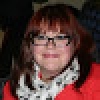Psychology
The systematic, objective study of our mental activity and behavior.
Nature vs. Nurture
Psychological debate over whether a person thought and acted based on their biology or because of how their experiences and how they were raised.
Agreed today that the answer is both.
Psychological Schools of Thought (7)
- Structuralism
- Functionalism
- Psychoanalytic Theory
- Gestalt Psychology
- Behaviorism
- Humanistic Psychology
- Cognitive Psychology
Structuralism
(1) School of thought.
Goal - To identify the basic parts/structure of the conscious mind
People - Wundt/Titchener
Functionalism
(2) School of thought.
Goal - To describe how the conscious mind aids adaptation to the environment.
People - James/Darwin
Psychoanalytic Theory
(3) School of thought.
Goal - To understand how unconscious thoughts cause psychological disorders.
People - Freud
Gestalt Psychology
(4) School of thought.
Goal - To study subjective perceptions as a unified whole.
People - Wertheimer/Kohler
Behaviorism
(5) School of thought.
Goal - To describe behavior in response to environmental stimuli.
People - Watson/Skinner
Humanistic Psychology
(6) School of thought.
Goal - To investigate how people become happier and more fulfilled. Focus on goodness.
People - Maslow/Rogers
Cognitive Psychology
(7) School of thought.
Goal - To explore internal mental processes that influence behavior.
People - Miller/Neisser
Subfields of Psychology (8)
- Biological
- Cognitive/Neuroscience
- Developmental
- Personality
- Social
- Cultural
- Clinical
- Industrial/Organizational
Biological Psychology
The subfield which studies how biological systems give rise to mental activity.
Cognitive Psychology/Neuroscience
The subfield which studies attention, perception, memory, problem solving, and langugage; often based off brain processes.
Developmental Psychology
The subfield which studies how people change from infancy to old age.
Personality Psychology
The subfield which studies enduring characteristics that people display over time and across circumstances.
Social Psychology
The subfield that studies how people are affected by others.
Cultural Psychology
The subfield that studies how people are influenced by the societal rules that dictate behavior in their cultures.
Clinical Psychology
The subfield that studies which factors cause psychological disorders and the best methods to treat them.
Industrial/Organizational Psychology
The subfield which studies issues pertaining to industry & the workplace.
5 Steps of Scientific Method
1) Focus on a theory (interconnected ideas that explain observations)
2) State a hypothesis (specific prediction of outcome based on theory)
3) Test with a research method
4) Analyze the data
5) Report results and embark on future inquiry (needs to be able to be replicated)
Types of Data Collection for Scientific Method (4)
Case Study ("study of brain tumors")
Self-Report Survey ("")
Observational Study ("Jane Goodall")
Experimental Methods (if 1 factor causes the other. Testing variables)





